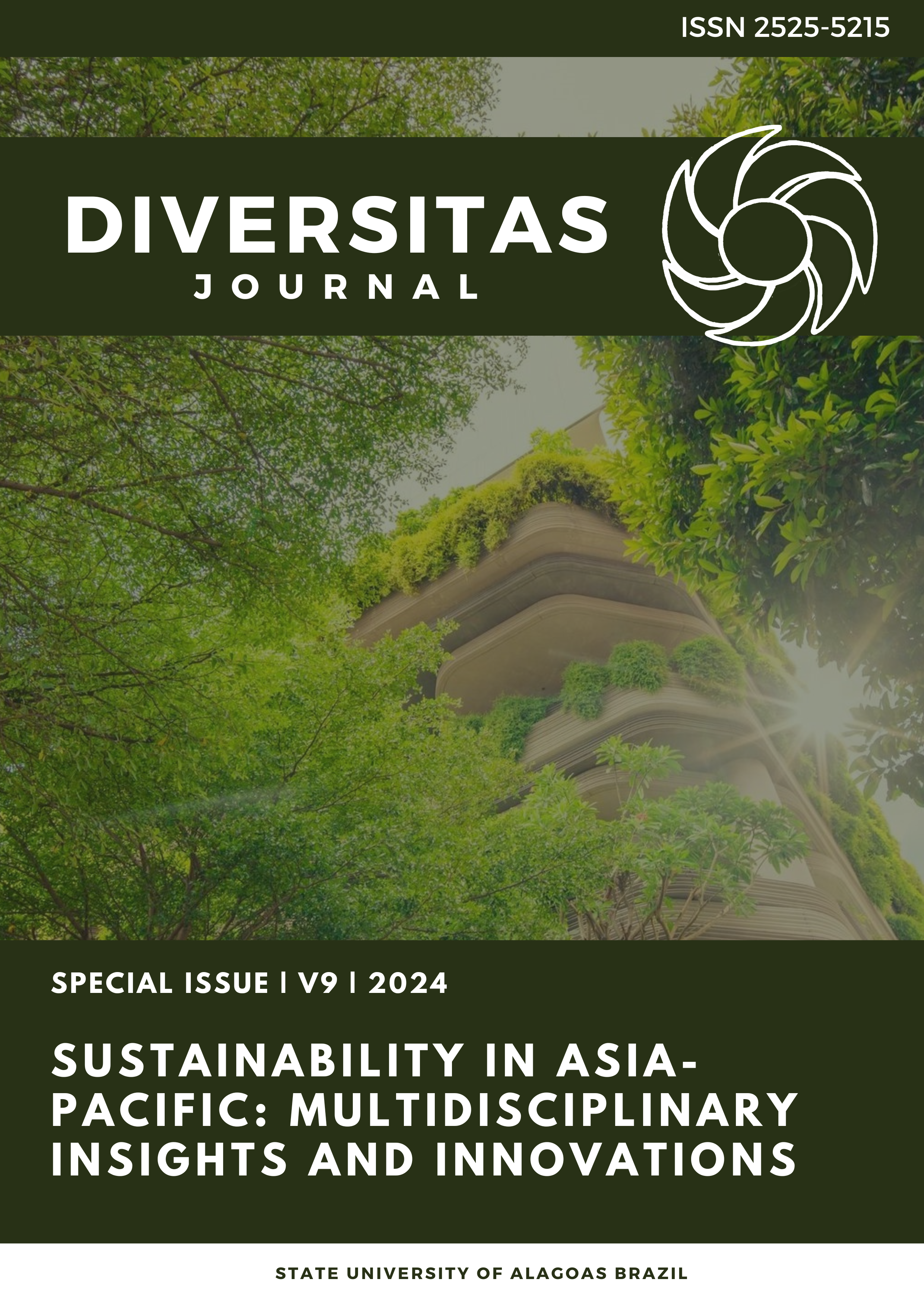Exploring the alcohol consumption of students in a higher education institution during the COVID-19 Pandemic: A case study
DOI:
https://doi.org/10.48017/dj.v9iSpecial1.2867Keywords:
binge drinking, DUI, cross-sectional, college, differencesAbstract
Several studies in foreign literatures indicated an increase in health-related problems induced by alcohol use as a result of the COVID-19 epidemic accompanying limitations on mobility. However, there were a handful of previous research on alcohol usage in the Philippines, particularly in Higher Education Institutions during the COVID-19 pandemic. With this current gap in mind, this study evaluated alcohol use among students at a Higher Education Institution in Metro Manila in order to offer evidence-based data for the formulation of alcohol-related health policy. Furthermore, this study is critical in developing an intervention program to assist students in diverting their focus away from alcohol intake. This study used an online survey form, with 564 students participated. The findings revealed that respondents have different preferences and patterns. Almost all of the respondents are aware of the dangers of excessive alcoholic beverage consumption; a large percentage determined that they do not have a drinking problem; a small percentage revealed that they have tried driving while under the influence of alcohol; and more than one-fourth of the respondents drank at least one glass of alcoholic beverages during enhanced community quarantine. The chi-squared test was also utilized to assess the difference between COVID-19 lockdowns and alcohol consumptions.
Metrics
References
Bourne, P. A., Bennett, J., Allen, D., Walker, S., Williamson, B., McLean, C., Fallah, J., Campbell, C., Foster, C., & White, M. (2021). Impact of Alcohol Consumption on the Psychological Wellbeing of Jamaicans during the Coronavirus Disease-19 (COVID-19) Pandemic. International Journal of Collaborative Research on Internal Medicine & Public Health, 13(9). https://www.iomcworld.org/articles/impact-of-alcohol-consumption-on-the-psychological-wellbeing-of-jamaicans-during-the-coronavirus-disease19-covid19-pandemic-85906.html
Callinan, S., & MacLean, S. (2016). “If I wanna get really drunk I would drink vodka”: drink choices associated with acute intoxication for young Australians. Drugs: Education, Prevention and Policy, 23(5), 397–403. https://doi.org/10.3109/09687637.2016.1139544
Cerkez, I., Culjak, Z., Zenic, N., Sekulic, D., & Kondric, M. (2015). Harmful Alcohol Drinking Among Adolescents: The Influence of Sport Participation, Religiosity, and Parental Factors. Journal of Child & Adolescent Substance Abuse, 24(2), 94–101. https://doi.org/10.1080/1067828x.2013.764372
European School Survey Project on Alcohol and Other Drugs. (2020). Results from the European School Survey Project on Alcohol and Other Drugs the ESPAD Group. http://www.espad.org/sites/espad.org/files/2020.3878_EN_04.pdf
Fernandes, B., Nanda Biswas, U., Tan-Mansukhani, R., Vallejo, A., & Essau, C. (2020). The impact of COVID-19 lockdown on internet use and escapism in adolescents. Revista de Psicología Clínica Con Niños Y Adolescentes, 7(2340-8340), 2020–2059. https://doi.org/10.21134/rpcna.2020.mon.2056
Pagkatipunan, P. M. N. (2017). Accessibility and Consumption of Alcoholic Drinks in Metro Manila Colleges and Universities. Acta Medica Philippina, 51(2). https://doi.org/10.47895/amp.v51i2.604
Pollard, M. S., Tucker, J. S., & Green, H. D. (2020). Changes in Adult Alcohol Use and Consequences During the COVID-19 Pandemic in the US. JAMA Network Open, 3(9), e2022942. https://doi.org/10.1001/jamanetworkopen.2020.22942
Pramaunururut, P., Anuntakulnathee, P., Wangroongsarb, P., Vongchansathapat, T., Romsaithong, K., Rangwanich, J., Nukaeow, N., Chansaenwilai, P., Greeviroj, P., Worawitrattanakul, P., Rojanaprapai, P., Tantisirirux, V., Thakhampaeng, P., Rattanasumawong, W., Rangsin, R., Mungthin, M., & Sakboonyarat, B. (2022). Alcohol consumption and its associated factors among adolescents in a rural community in central Thailand: a mixed-methods study. Scientific Reports, 12(1). https://doi.org/10.1038/s41598-022-24243-0
Qian, L., Newman, I., Yuen, L., Shell, D., & Xu, J. (2018). Variables Associated with Alcohol Consumption and Abstinence among Young Adults in Central China. International Journal of Environmental Research and Public Health, 15(8), 1675. https://doi.org/10.3390/ijerph15081675
Rabacal, J. S., Oducado, R. M. F., & Tamdang, K. A. (2020). COVID-19 Impact on the Quality of Life of Teachers: A Cross-sectional Study. Asian Journal for Public Opinion Research, 8(4), 478–492. htps://doi.org/10.15206/ajpor.2020.8.4.478
Rahman, H.A., Amornsriwatanakul, A., Abdul-Mumin, K.H., Agustiningsih, D., Chaiyasong, S., Chia, M., Chupradit, S., Huy, L.Q., Ivanovitch, K., Nurmala, I., Abdul Majid, H.B., Nazan, A.I.N.M., Rodjarkpai, Y., De la Cruz, M.H.T.O., Mahmudiono, T., Sriboonma, K., Sudnongbua, S., Vidiawati, D., Wattanapisit, A., . . . Rosenberg, M. (2022). Prevalence of Health-Risk Behaviors and Mental Well-Being of ASEAN University Students in COVID-19 Pandemic. International Journal of Environmental Research and Public Health, 19. https://doi.org/10.3390/ ijerph19148528
Schecke, H., Bohn, A., Scherbaum, N., & Mette, C. (2022). Alcohol use during COVID-19 pandemic on the long run: findings from a longitudinal study in Germany. BMC Psychology, 10(1). https://doi.org/10.1186/s40359-022-00965-8
Simbulan, N. P. (2020, June 4). The Philippines – COVID-19 and its impact on higher education in the Philippines. The HEAD Foundation. https://headfoundation.org/2020/06/04/covid-19-and-its-impact-on-higher-education-in-the-philippines/
Son, C., Hegde, S., Smith, A., Wang, X., & Sasangohar, F. (2020). Effects of COVID-19 on college students’ mental health in the United States: Interview survey study. Journal of Medical Internet Research, 22(9), 1–14. https://doi.org/10.2196/21279
Vasquez, B. A. (2011). "Tagay" and Cross Contact Contamination: The Cebuano Culture of Sharing Glasses. Journal of the research and education development training institute, 7(1), 147–160. https://doi.org/10.5281/zenodo.2537592
Downloads
Published
How to Cite
Issue
Section
License
Copyright (c) 2024 Michelle Lei Victorino, Jovy Cuadra

This work is licensed under a Creative Commons Attribution 4.0 International License.
The Diversitas Journal expresses that the articles are the sole responsibility of the Authors, who are familiar with Brazilian and international legislation.
Articles are peer-reviewed and care should be taken to warn of the possible incidence of plagiarism. However, plagiarism is an indisputable action by the authors.
The violation of copyright is a crime, provided for in article 184 of the Brazilian Penal Code: “Art. 184 Violating copyright and related rights: Penalty - detention, from 3 (three) months to 1 (one) year, or fine. § 1 If the violation consists of total or partial reproduction, for the purpose of direct or indirect profit, by any means or process, of intellectual work, interpretation, performance or phonogram, without the express authorization of the author, the performer, the producer , as the case may be, or whoever represents them: Penalty - imprisonment, from 2 (two) to 4 (four) years, and a fine. ”


















